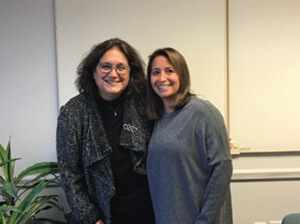


On June 21, the U.S. Supreme Court ruled in the case Carson v. Makin, deciding that state aid programs cannot discriminate between religious and secular institutions. One day later, two lobbyists for the Orthodox Union (OU) and a professor of law presented a webinar to discuss the implications of the decision for Orthodox Jewish children and families.
The webinar featured Nathan Diament, executive director of the OU Advocacy Center; Professor Avi Helfand, vice dean for faculty and research at Pepperdine Law School and a visiting professor at Yale Law School; and Maury Litwack, managing director of public affairs for the OU.
Litwack moderated the discussion, which began with Helfand explaining the SCOTUS decision. The state of Maine has many rural areas, and not every school district has a public high school; thus, Maine passed a law so that students who live in a school district without a local high school may attend a local nonsectarian private school, and their attendance would be funded by the state of Maine. However, a group of parents made a claim that the First Amendment prohibits religious discrimination, and if Maine is providing funding to its private high schools, it cannot discriminate on the basis of religion. The case eventually went to the U.S. Supreme Court, which ruled in the parents’ favor.
When Litwack asked Diament where this decision fit into the decisions he’s seen, Diament replied, “This is a marathon. It’s not a sprint … we’re somewhere around mile 20. This has been decades in the making.” He discussed how, in the 1950s and 1960s, American Jewry was represented in these types of issues by “large secular advocacy groups”—mainly the Anti-Defamation League and the American-Jewish Congress—which advocated for strict separation of religion and state and played a part in the Supreme Court eliminating school aid programs.
However, the Orthodox Jewish community decided that this approach was not consistent with its interests and values, and founders of this effort decided to break away from the AJC and ADL; Diament paraphrased their reasoning as being, “‘We certainly don’t want Christian dominance in America, but we want fair treatment. We don’t think there’s anything wrong with religious institutions being supported as long as it’s done in a fair way.’”
Over the next few decades, the court drifted away from its strict ideology on the separation of church and state. “2000 was a watershed moment where the Supreme Court said school voucher programs are constitutional,” Diament said. “They didn’t require states to enact school voucher programs, but school voucher programs could not be stopped as being unconstitutional, and now we’re here 20-plus years later, and this is the third opinion in the last five years by this Supreme Court, really solidifying this notion that, as Avi Helfand said, ‘Discrimination is discrimination, and you can’t use the separation of church and state as an excuse or as a rationale to discriminate against religious institutions.’”
However, Diament cautioned people against being overly optimistic. “If the finish line … is the government writing subsidies for Jewish day school tuition, we’re not at that finish line yet. That’s not what this case says, but we’re a lot of the way there because of yesterday’s court decision.”
Regarding the practical implications, Helfand said, “Given what the Supreme Court said yesterday, advocates ought to be identifying government programs—federal, state, and local—where there are unconstitutional exclusions of religion.” He provided several examples, such as a program in New York that bars people from providing religious instruction during hours when the school is receiving government funding. “I think somebody will probably pretty soon … file a lawsuit saying you can’t exclude religious instruction if you’re providing funding for universal kindergarten,” he explained.
Helfand also pointed out that this new legislation “makes more natural alliances,” saying that religious communities now know that “if they work with other communities to get a funding program geared toward secular public policies, there is no government official that is allowed under the First Amendment to exclude religion and religious institutions.” He concluded that advocacy arms should use this law to build more partnerships and find more public policies that the government should fund.
Diamond added that the ruling is also significant for bus transportation. The Supreme Court ruled in the past that it was unconstitutional to provide bus transportation to religious schools, but if they are providing bus transportation to any nonpublic school students, they are now obliged to also provide it for religious schools as well.
In response to the question of whether students at private religious institutions would be getting vouchers, Helfand replied, “No, we are not getting vouchers tomorrow.” He explained that, even with this ruling, the government—federal, state and local—has the right to fund public schools only, and does not have to fund private schools.
“What yesterday’s ruling tells us is, ‘If you fund private schools, then fund all private schools, religious and nonreligious alike.’” Helfand explained that most states do not fund private schools and do not have a general voucher program, and these states would not be obligated to fund private religious schools. However, if they are funding private schools, they must include religious schools as well.
Helfand said that the Jewish community should be committed to this issue because “it’s not just about the dollars, but it’s the idea that our institutions were second-class in some ways when it came to these funding programs, and this is what the OU’s brief [to the Supreme Court] was really on: We don’t want to be second-class. We want to be treated equally and neutrally. We want to show that, if our institutions can accomplish what the program is meant to do, then Jewish institutions, religious institutions, any institution ought to be able to participate.”
By Brooke Schwartz









